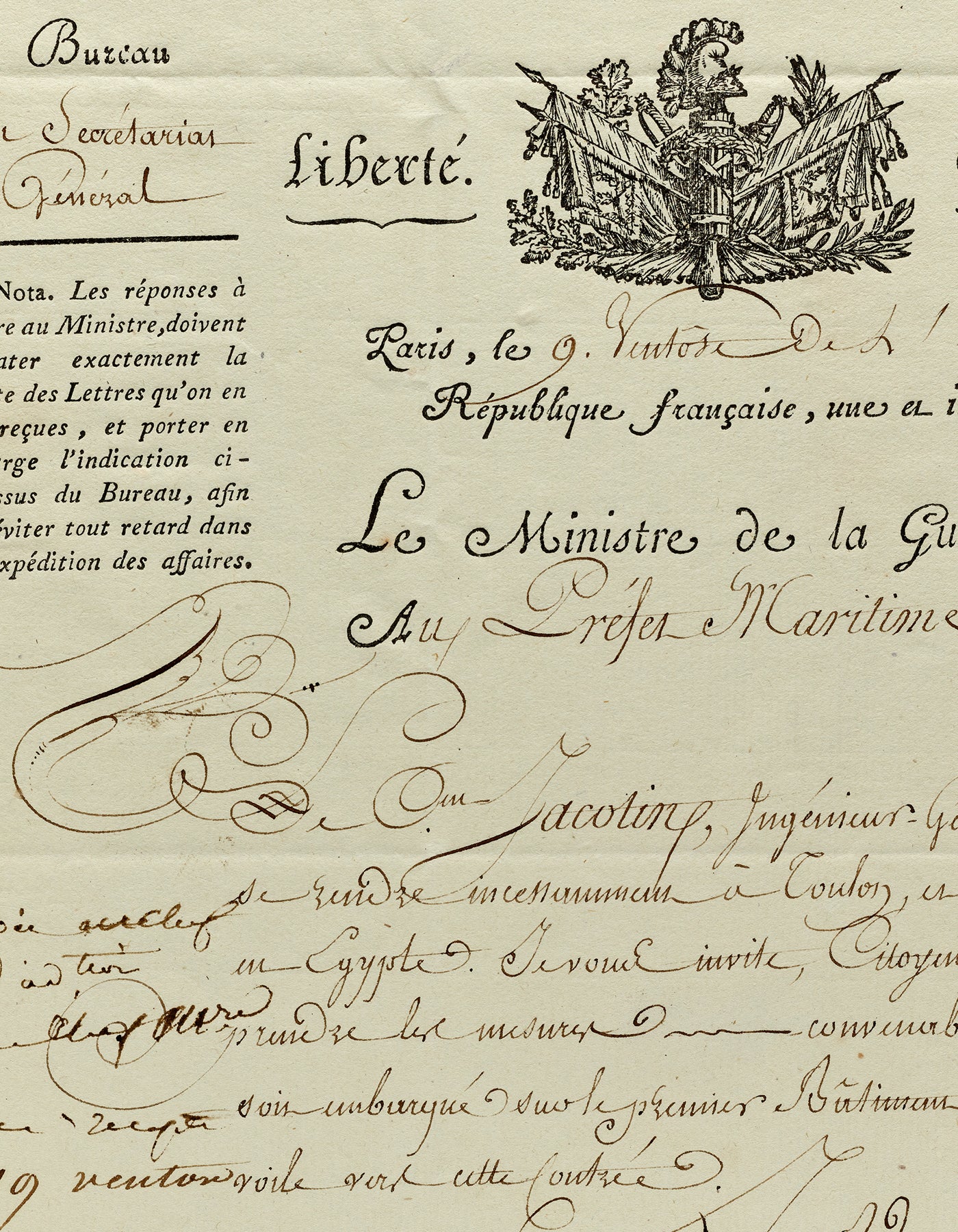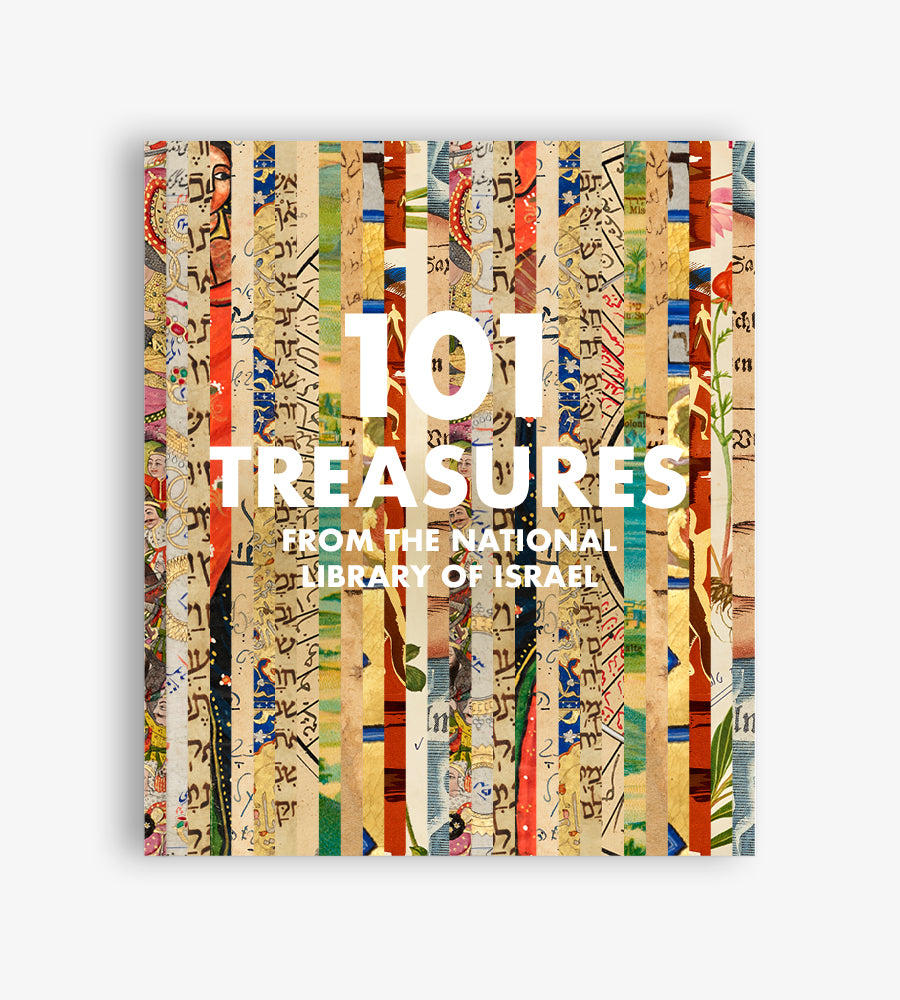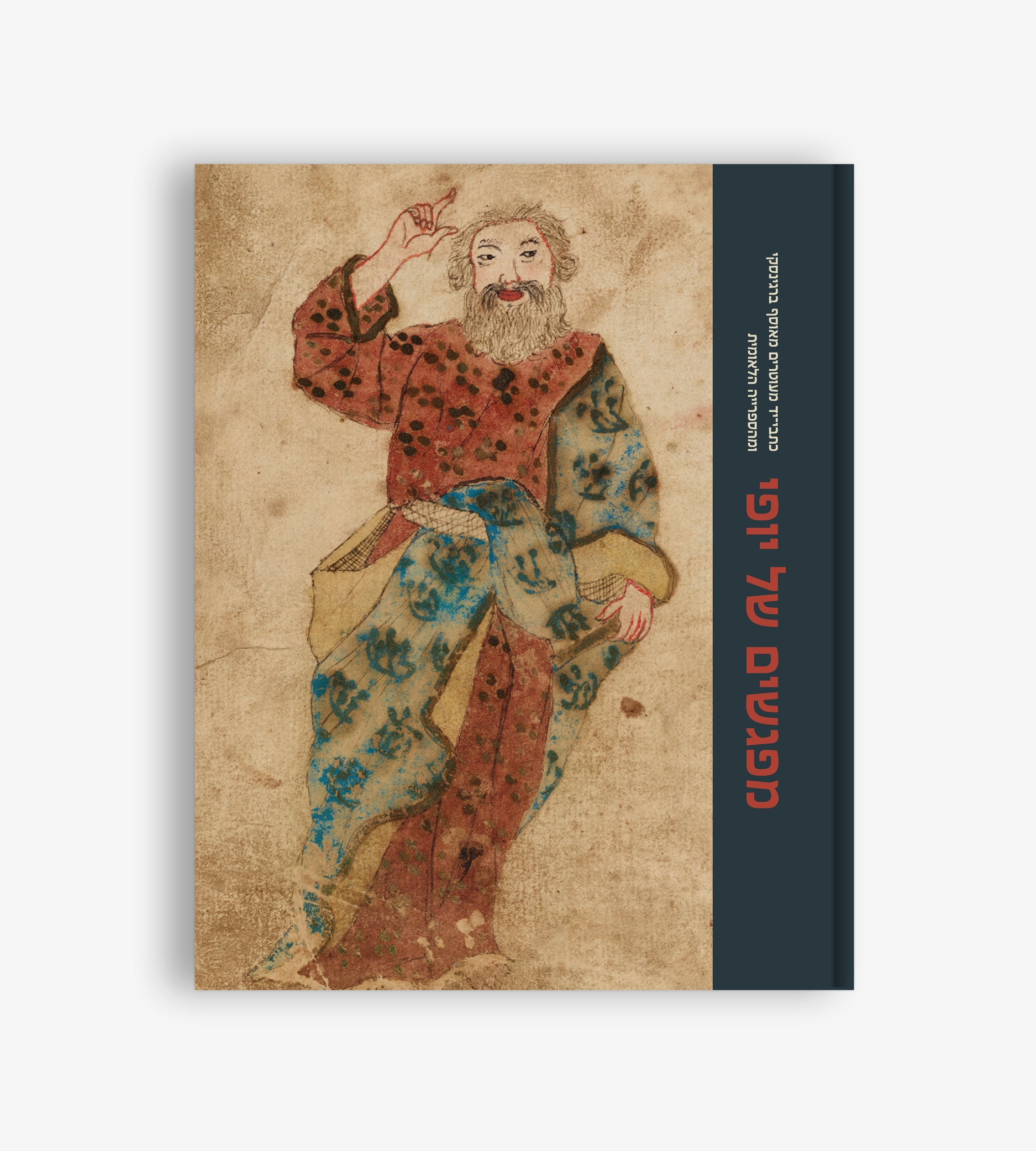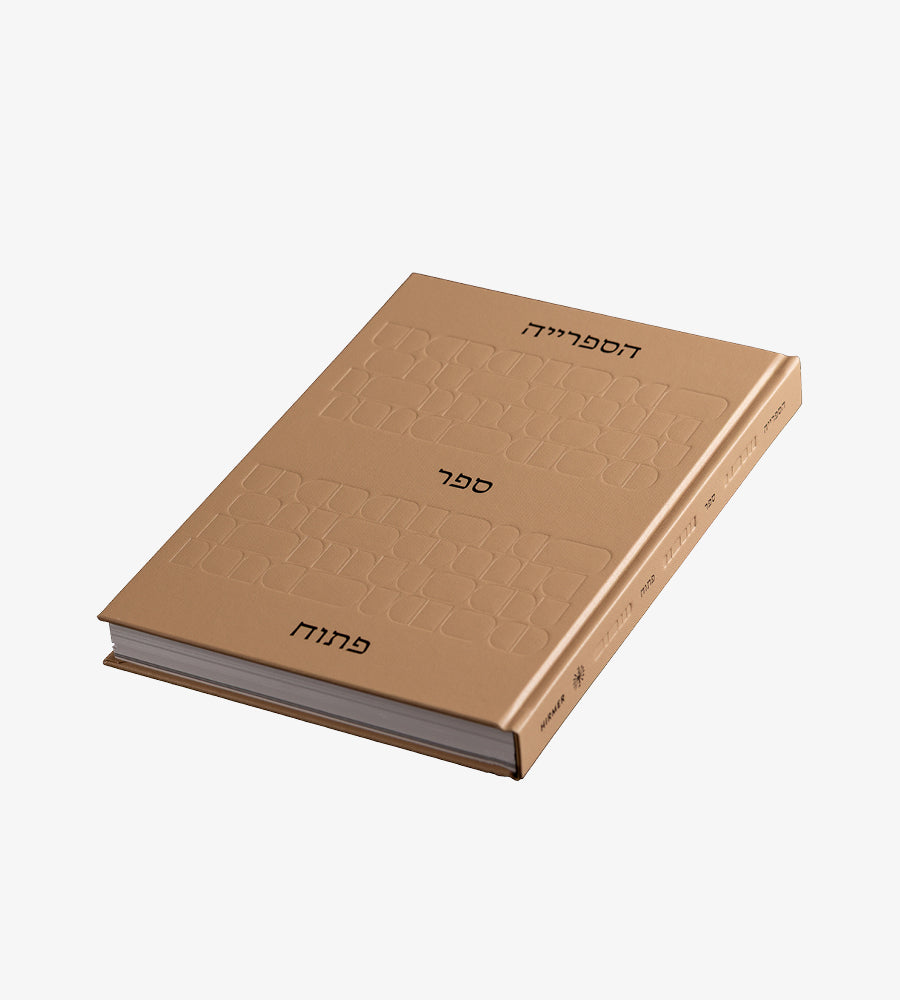
Napoleon in Egypt
Stefan Litt

In July 1798, close to the village of Rashid (Rosetta) in northern Egypt, French soldiers from Napoleon’s army discovered a fragment of an ancient stele inscribed with a decree in three languages. Experts hoped to decipher the ancient Egyptian hieroglyphs with the help of this stone. However, the challenge of unlocking the ancient language became even harder during the ensuing period of tumult and transformation.
Napoleon’s conquest of Egypt lasted only three years but was a watershed moment in Egyptian history. It was the first Western attack on the Middle East since the Crusades and aimed to disrupt British trade routes between India and Europe. By the time they were routed by the British in the summer of 1801, the French had both ushered in critical elements of modernization and laid the cornerstones for modern Egyptology and archaeology.
The National Library’s collection of over 1,000 letters, orders, reports, and other documents from the Napoleonic era includes about 300 items related to the Egyptian campaign. The documents show how the French used the newest methods to map the region, administer health policies to face the challenges of the bubonic plague in particular, and survey the region and its history and culture. They also testify to the introduction of the first printing press to Egypt and the initiation of a cultural program that included, for example, celebrating the renovation of the nilometers and the watering channels. Thirteen of these documents are signed by Napoleon himself.
Other documents shed light on archaeological excavations and discoveries made by French scientists. Most of the findings, however, did not remain with them after their return home. After the loss of the French fleet in a sea battle, the French expedition corps had no choice but to rely on the British Navy to bring them back home in 1801. However, the British commander-in-chief demanded the aforementioned Rosetta Stone, along with other findings, as compensation. This explains why this and other valuable items never reached France.















